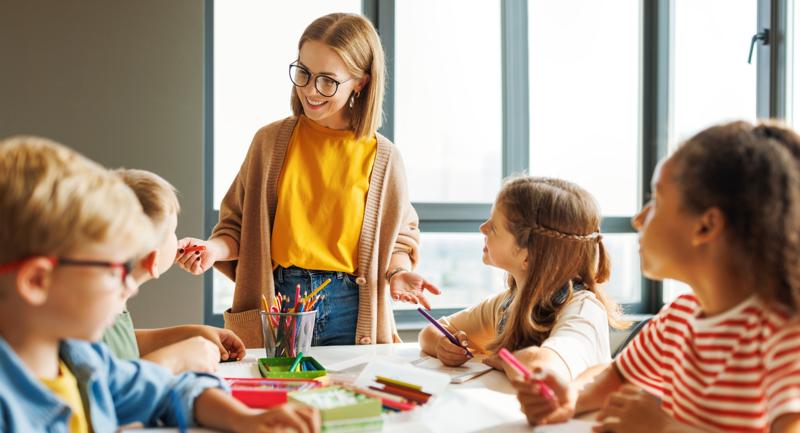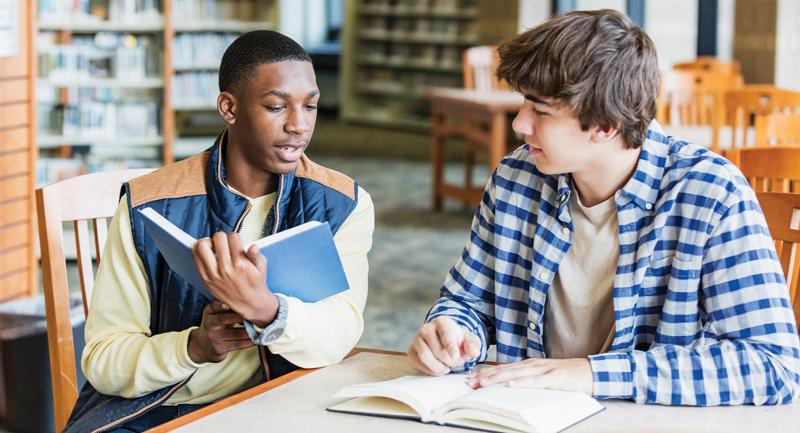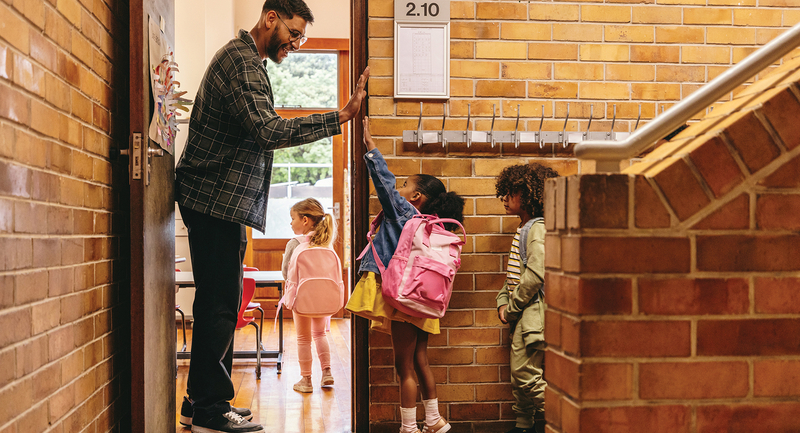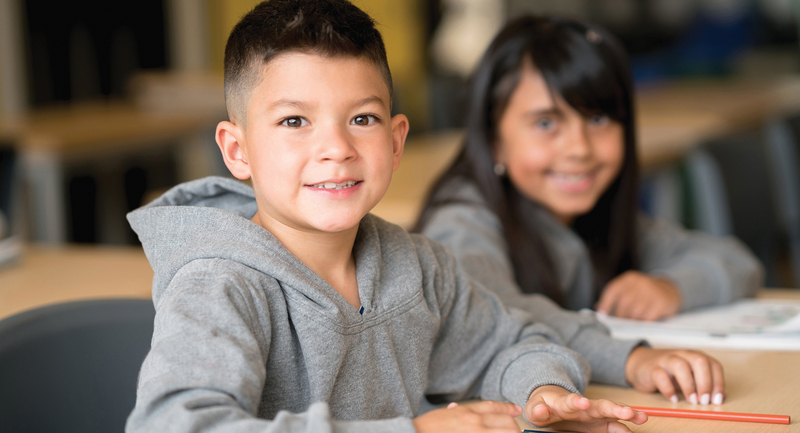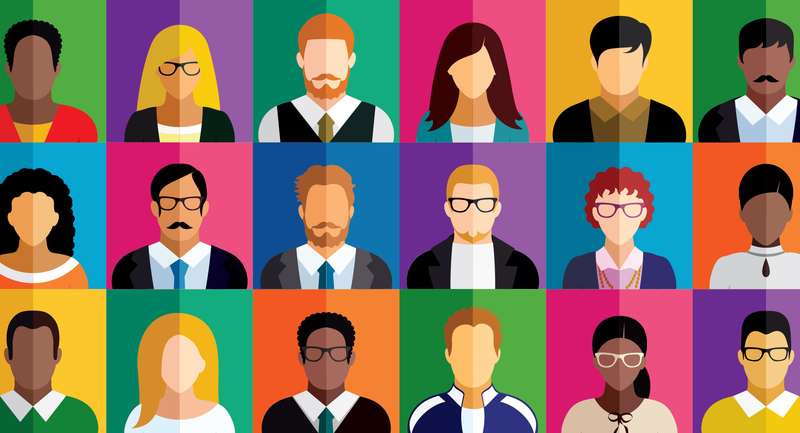After George Floyd's public execution earlier this year, many of us—and many of our institutions—made public, impassioned statements and promises to commit to antiracism. Some of us put black squares on Instagram. Others posted #BlackLivesMatter on Twitter. However, over the past few months, I have watched the enthusiasm fade while folks carry on with their comfortable lives. I have witnessed people lay back, put their feet up, and pour all of their faith into government officials to make everything right and to eradicate anti-Black racism overnight. The day after the 2020 presidential election, in conversations with friends about the results, I wrote back to everyone with the same message:
People will do whatever it takes—even if it kills them—to protect their power, their whiteness. I have always known who this country is. I knew who she was before yesterday. I know who she is today. White supremacy will not go away overnight. Our country's commitment to anti-Blackness is the same as its worship of whiteness. No president will save us. We have to save ourselves.
The world feels so heavy now. Most days, I feel like I'm on the verge of despair. Most days, I'm tired from carrying the brunt of anti-Black racism on my back. Most days, I feel like the frustration, anger, and sadness I hold inside my body will suffocate me. After I listen for the messages in my feelings and handle them with care, I crawl out of my funk because I must. Even when I'm bogged down with the violence of yesterday's, today's, and tomorrow's racism. Even when I'm hurt. Even when I don't have any answers. I refuse to allow every person, every policy, every law that has tried to kill my spirit have the pleasure of watching me die. I remember my ancestors' strength, and I remember mine, too. I remember the many times I've already had to save myself.
Not all of us have the privilege to relax and walk away from eradicating racism. My life depends on my fighting for the white world to know, to respect, and to acknowledge my humanity, my Black humanity. The fight for racial justice, however, needs to be everyone's fight—not just mine, not just Black people's, not just those forced to the margins of society. We save ourselves by collectively coming together and committing to and working toward racial harmony.
I want us to remember the many times this year—and the many years before it—when we have saved ourselves. I want us to lean into our gifts, into the moments of eureka in our classrooms, into our resourcefulness and resilience. I want us to remember how we have been showing up to hybrid and online classrooms despite the frustration, anxiety, and fear we have felt as a result of COVID-19. I want us to lean into our desire to make a difference. I want us to remember our creativity, conviction, and dedication to teaching and guiding young people to believe in themselves. I want us to know our power. I want us to know that we are capable of being part of the necessary change to ensure that our nation can live out its values of equality and justice for all by teaching our students to know their power, too.
Plan for Check-Ins with Yourself
In order to know our power to save ourselves, it is important that we flex our self-awareness muscles. We can do this by checking in not only on how we are doing, but also on what we need, on what in our lives does not serve us, and on where we are thriving. For a long time, I convinced myself that I was doing well when I wasn't. I ignored my pain and let it become a toxin in my body. My unaddressed hurt —and the constant wear-and-tear of white doubts and white attacks disguised as kindness and mentorship—made it difficult for me to know my power. Once I committed to a practice of checking in with myself as part of my self-care and healing, I started to remember who I was and to rediscover my voice.
Now, I start each day by reflecting on the following questions during my morning meditation or as part of my daily communal writing practice (a group of friends and I hold each other accountable):
How do I feel right now?
What is causing how I feel?
How are my feelings manifesting in my body, in my spirit, and in my mind?
What are the barriers to my wellness, self-care, and healing?
What do I need to be at my optimal state?
Where and when am I at my best? When am I not?
What is my plan to get what I need to heal or to get rid of what doesn't serve me?
What more can I do for the betterment of myself and of others?
Once I've reflected on those questions and identified some revelations, themes, and areas of growth, I create an action plan to fill the gaps, to let go of what's holding me back. I set reasonable goals and timelines so that I do not overwhelm myself, and I usually work on one goal at a time. Some days are easier than others. Other days, I fail. Nonetheless, I commit to something each day.
I invite educators to check in with themselves and to invite their students to do the same if they find it useful. By building a daily check-in, we can build the necessary self-awareness to focus on our self-care and healing—and the caring of others, too. This self-awareness is important as we make racial justice and equity a daily practice in our personal and professional lives as part of collective care. That is, we have to know how our power, privilege, and positionality influence our lives, how they give us access to resources or not, how they show up in the world, and how they can be abusive and even toxic to others if we aren't mindful.
Holding Ourselves Accountable
As we check in and build our self-awareness daily, we must also hold ourselves accountable to the work of racial equity. With that in mind, I invite you to ask yourself—as well as your institutions—the following questions:
What have I done for racial justice today?
How have I changed how I live for racial justice?
Am I performing antiracism? Am I being sincere?
What more can I do for racial harmony?
Am I centering myself in this work?
The responses to these questions give us information on what more we can do.. If we haven't made concrete changes, then we know we must make a plan to change how we live, how we teach, and how we lead with racial justice at the core. My article, How To Be An Antiracist Educator, is a useful blueprint for getting started. Importantly, holding ourselves accountable coupled with taking action results in greater possibility that our antiracism is sincere, that we are not contributing to others' suffering with willful ignorance. This is why the work starts with building our self-awareness, but we can also invite a trusted group of colleagues to be accountability buddies who remind us of our goals and who we say we want to be. We can create a protocol for holding each other accountable to which each party agrees.
As we aim to hold institutions accountable, it is important that we do so as a collective. We can find a core group of people aligned with a vision for racial justice and work with them to push our organizations and institutions strategically and collaboratively, including using tactics of successful community organizers and partnering with community groups and families to eradicate white supremacy culture at our schools and districts.
Transforming institutions is challenging but not impossible. There will be rejection, misunderstandings, and fragile feelings. However, leaning into people's general desire to be and do good can serve as fuel to sustaining racial justice work—that and, primarily, the many Black people in our nation, who deserve dignity and respect. Importantly, we must also recognize when it's time to leave a place for somewhere else that's more aligned with our values of social and racial justice.
How to Save Ourselves
Through developing an accountability practice and harnessing our self- and social awareness, we can begin the process of healing from our collective, unprocessed trauma of racism. We can begin to recognize our gifts, our fears, our needs, our barriers, and our potential so that we do not have to rely on others to save us, so that we can save ourselves. In our current reality of multiple pandemics, the one consistent theme is our country's sin of racism. More Black, Indigenous, and Latinx folks are suffering from COVID-19, financial hardship, homelessness, discrimination, and death-by-the-police-state. We save ourselves by staying woke and committed, by asking for help when we need it, by decentering our ego, by understanding that racial justice is a practice, and by remembering the promise of education and bending its arc towards justice. 


